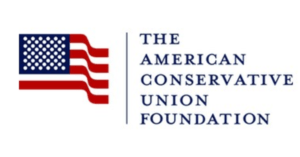
![]()


Dear Chairman Grassley:
On March 21, we wrote to urge you and members of the committee to conduct basic oversight with respect to the president’s nominees to serve as United States Attorneys. After noting the enormous influence federal prosecutors have over the criminal justice system, we encouraged you to ask nominees (at a hearing or in writing) about their prosecutorial philosophy or approach on several key issues, including sentencing, asset forfeiture, and federalism. We write again today to renew that request.
Since we sent our original letter in March, the attorney general of the United States has taken steps to further increase the power and influence of federal prosecutors:
- On May 1, the attorney general urged congressional leaders to oppose any limitation on the Justice Department’s ability to prosecute individuals who buy, sell, or cultivate medical marijuana in states that have legalized such conduct. A bipartisan majority in Congress had approved the limitation on federal prosecutions out of respect for states’ rights and to promote federalism;
- On May 10, the attorney general released a new charging memo, which directed all U.S. Attorney offices to seek the most severe penalties possible, including mandatory minimum sentences, in every drug case;
- On July 19, the attorney general announced a new policy to expand the use of civil asset forfeiture, a constitutionally suspect practice. In recent years, many states have limited their use of civil asset forfeiture because of due process concerns. The attorney general’s new policy would give law enforcement officials in states that have curtailed forfeiture a way to circumvent state restrictions. In those states, federal law enforcement officials would accept seized property and assets and share them with the state.
As we wrote in March, federal prosecutors are the most powerful actors in the criminal justice system today. Recent policies adopted by Attorney General Sessions will only increase prosecutorial authority and influence.
In response to criticism of the new drug charging memo, the attorney general suggested that fundamental liberties would be safeguarded because federal prosecutors could be expected to exercise “good judgment.” We do not share the attorney general’s confidence. Nor, we suspect, would the Framers of our great Constitution who understood well the danger that well-intentioned but unchecked governmental actors posed to individual freedoms. The Framers believed the fundamental liberties protected in our nation’s charter, including the rights of trial by jury and due process, could be preserved only if government power was divided between co-equal branches and between national and state governments.
Given the growth in prosecutorial power over the past few decades, and in light of the recent expansions proposed by the attorney general, we believe that now is the time for Congress to exercise its oversight responsibility. Some have suggested that the Judiciary Committee will ignore our request for basic oversight because members of the committee (and the Senate) play a role in recommending the individuals who will be nominated to serve as U.S. Attorneys in their home states. We reject this cynical view for a number of reasons, not the least of which is that Senators also recommend federal judicial nominees from their home states, and this committee seeks those nominees’ views before voting to confirm or oppose them. Having said that, we are not aware of any reason why the committee should not explore basic questions about prosecutorial philosophy and approach with nominees for these powerful positions.
As we stated in March, we do not seek to delay the nominations process. The president is entitled to speedy consideration of his choices to serve as U.S. Attorneys. We strongly believe, however, that the modest oversight we are urging the Committee to conduct with regard to these powerful government actors is extremely important and will not result in any significant delay in the nominations process.